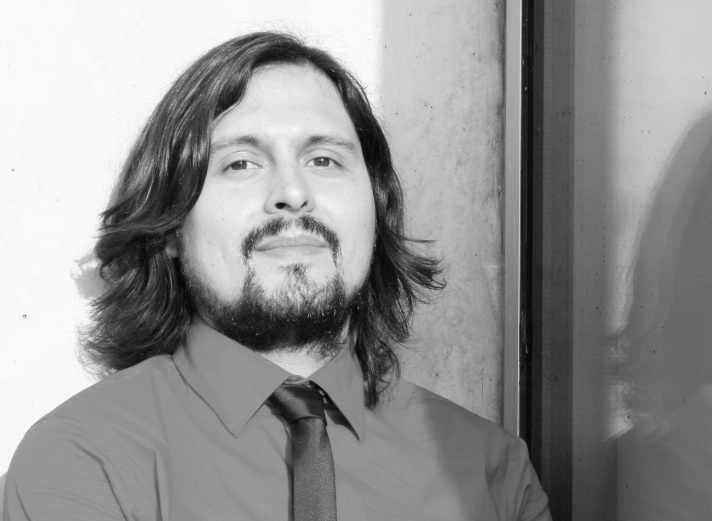Dr. Stefan Ullrich

About
Stefan Ullrich holds a doctorate in computer science and a master's degree in philosophy and critically examines the impact of ubiquitous information technology systems on society. Until 2022, he was a research group leader at the Weizenbaum Institute, where he is now associated with the research group “Digitalization, Sustainability and Participation”. He is coordinator for digital education in the AI Ideas Workshop for Environmental Protection of the BMUV. In an honorary capacity, he carries out numerous activities in the field of computer science and ethics.
Since 2023, he has substituted for the Chair of Media Aesthetics and Media Technology at ICAM at Leuphana University in Lüneburg. During this time, his work for ZUG's Civic Tech Lab AI for Environmental Protection (KI-Ideenwerkstatt für Umweltschutz) on behalf of the Federal Ministry for the Environment is suspended.
For many years, he was a member of the working group »Informatics in Education and Society« at HU Berlin under Prof. Wolfgang Coy. He then conducted research on questions of the field of tension between »techne and episteme«at the Cluster of Excellence »Image Knowledge Design« at HU Berlin. His dissertation dealt with the information-technical foundations of the public use of reason.
Stefan Ullrich is co-chair of the Commission for Ethics in Research at the TU Berlin, he is a member of the Commission of Experts for the Third Equality Report of the Federal Government and deputy spokesperson of the specialist group "Informatics and Ethics" of the German Informatics Society (GI e.V.). He is also an active member of the Forum of Computer Scientists for Peace and Social Responsibility (FIfF e.V.) and the VDW's Digitalisation Study Group. Since 2019, he has been on the advisory board of the International Federation for Information Processing (IFIP), Chapter TC 9.
Positions
Associate Researcher since 1 January 2022
Research Group „Digitalisation, Sustainability, and Participation”
Research Group Lead until 14 September 2022
Research Group "Responsibility and the Internet of Things"
More Projects
Informational Sustainability and the Public Sphere (2022-2023)
Sustainability has several dimensions; in general, ecological, economic and social sustainability are distinguished. For the cross-section »sustainability x digitalisation«, we propose the new concept of Informational Sustainability, based on the data protection concept of informational self-determination. Informational sustainability examines the basic informational conditions of all sustainability dimensions.
Public reasoning, an essential ingredient for the Enlightenment, needs publics. In private salons and coffee houses, discussions were oral and direct; the knowledge base and topics of discussion were written and mediated in the leading media of the time. More than a century later, we must ask ourselves: Do mass media still exist – or are there only hyper-individual media, created by economic constraints and attention-psychological tricks that can make participation in society difficult? Is the operation of the »Fourth Estate« sustainable? What Fifth and Sixth Estate might emerge?
The aim of this research project is a joint publication in a suitable journal as well as a contribution at the Bits & Trees conference, which will take place in Münster on 16 + 17 June 2023.
Artificial Intelligence for Good and for All (2022-2023)
Artificial intelligence (AI) is the Rorschach test of our time. Wishes and concerns of the networked society are attributed to this sub-field of computer science. Computer pioneers such as Joseph Weizenbaum, Grace Hopper and Heinz Zemanek warned early on that we must retain informational sovereignty over our devices. When a complex information technology system outputs a number at the end of the calculation, this number must be put into context and interpreted. This requires a basic understanding of how it works. This knowledge must be passed on sustainably to all those affected by the systems. Education is therefore a central issue in AI.
Artificial intelligence (AI) is closely linked to large institutions and companies, in the research project we want to carry out and evaluate a public good-oriented »learning by making« approach. To this end, together with the Methods Lab of the Weizenbaum Institute and the Civic Tech Lab AI for Environmental Protection (KI-Ideenwerkstatt für Umweltschutz), a format is being developed that on the one hand aims to provide understanding about how AI works, but at the same time demystifies the technology and uses it as what it was intended for: as a knowledge tool for complex data, such as that generated in the environmental sciences.
The aim of this research project is to develop a practical workshop method in cooperation with the Methods Lab of the Weizenbaum Institute. In doing so, the preliminary work of the knowledge tool »Weizenbaum Knowledge Hypercube« is to be taken up and further developed. In addition, this method is to be implemented in a suitable space for an interdisciplinary audience in hands-on workshops, for example as part of the Weizenbaum Conference 2023 and/or the Berlin Science Week from 1-10 November 2023.
Turing Bus (2018-2020)
The mobile educational project »Turing Bus«, which Stefan Ullrich co-conceived and which is funded by the BMBF, not only teaches central concepts of computer science, but also enables students to express their political opinions.
Committees and functions
- Since 2011, spokesperson of the specialist group "Informatics and Ethics" of the German Informatics Society (GI e. V.)
- Member of the Forum Computer Scientists for Peace and Social Responsibility (FIfF e. V.)
- Co-chair of the Commission for Ethics in Research at the TU Berlin
- German representative of Chapter TC 9.2.2 of the International Federation for Information Processing (IFIP)
Publications
...